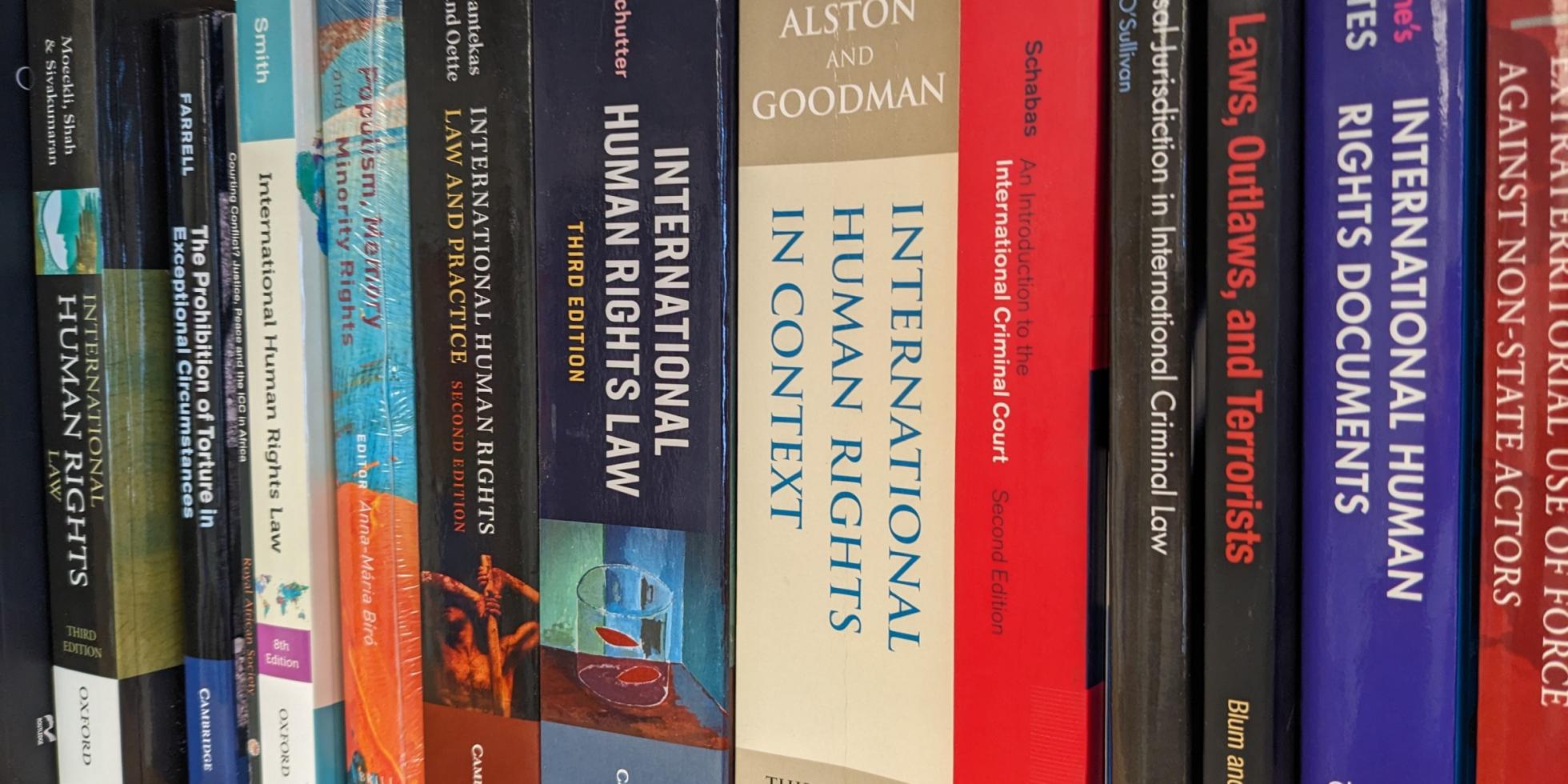The virtual human rights library brings together resources from multiple libraries and information services, both internal and external, to create an online hub dedicated to the study of human rights. This curation is unique in its interdisciplinary concerns and focuses on writings and research from social sciences, humanities, and law.
The virtual library is continually updated with the latest academic research in issue areas, as well as with relevant films, recorded conversations, and other forms of media.
Please Note:
The Virtual Library is usable by all visitors, but the hyperlinks to materials listed are for UChicago community members with a CNet ID and password.
Please direct feedback and suggestions to Kathleen Cavanaugh.
For technical assistance, email pozenhumanrights @ uchicago.edu.
Searchable Database
Click into the dropdowns to select the disciplines, keywords, and media type for your search, and then hit "Apply."
"CIA on the Couch: Why There Would Have Been No Torture without the Psychologists"
Major national organizations of physicians, psychiatrists, and nurses determined that their ethical obligations prohibited their members from participating in these interrogations, so what was the American Psychological Association doing?
"Panel Faults C.I.A. Over Brutality and Deceit in Terrorism Interrogations"
The release of the Senate Intelligence Committee report on C.I.A. interrogation tactics added a new chapter to the national conversation on the government's use of torture.
"The Fall and Rise of Torture: A Comparative and Historical Analysis."
Torture was formally abolished by European governments in the 19th century, and the actual practice of torture decreased as well during that period. In the 20th century, however torture became much more common. None of the theories that explain the...
"The Textual Mediation of Denial: Congress, Abu Ghraib, and the Construction of an Isolated Incident."
The rhetorical techniques by which governments deny, justify, and qualify alleged instances of torture have been well documented. Sociologists, however, have neglected the social contexts in which officials confront allegations of torture, as well as officials' use of evidence to...
"Unspeakable Acts, Ordinary People: The Dynamics of Torture"
Unspeakable Acts, Ordinary People is a riveting book that exposes the potential in each of us for acting unspeakably. John Conroy sits down with torturers from several nations and comes to understand their motivations. His compelling narrative has the tension...
Civilizing Torture: An American Tradition
The pilgrims and merchants who first came to America from Europe professed an intention to create a society free of the barbarism of Old World tyranny and New World savagery. But over the centuries Americans have turned to torture during...
De nos frères blessés
Alger, 1956. Jeune ouvrier communiste anticolonialiste rallié au FLN, Fernand Iveton a déposé dans son usine une bombe qui n'a jamais explosé. Pour cet acte symbolique sans victime, il est exécuté le 11 février 1957, et restera dans l'Histoire comme...
Des hommes
Ils ont été appelés en Algérie au moment des « événements », en 1960. Deux ans plus tard, Bernard, Rabut, Février et d’autres sont rentrés en France. Ils se sont tus, ils ont vécu leurs vies. Mais parfois, il suffit...
Entendez-vous dans les montagnes...
Il a fallu deux ans à Maïssa Bey pour traduire en mots cette part muette de sa vie : son père mort sous la torture en 1957 pendant la guerre d’Indépendance, alors qu’elle avait sept ans. Son récit est splendide dans sa...

